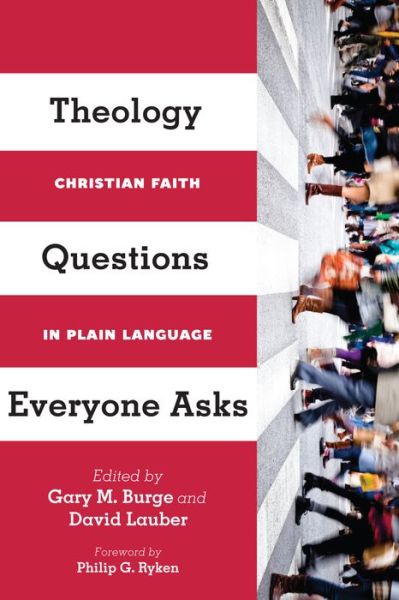Theology Questions Everyone Asks: Christian Faith in Plain Language book download
Par montes virginia le vendredi, octobre 9 2015, 23:26 - Lien permanent
Theology Questions Everyone Asks: Christian Faith in Plain Language.
Theology.Questions.Everyone.Asks.Christian.Faith.in.Plain.Language.pdf
ISBN: 9780830840441 | 203 pages | 6 Mb

Theology Questions Everyone Asks: Christian Faith in Plain Language
Publisher: InterVarsity Press
May 22, 2014 - And in a post in 2007 I made the argument that progressive Christianity--the emerging church movement was my focus at the time--should jettison its dance with post-modernity and embrace the epistemology of American pragmatism. Oct 15, 2013 - In brief, I see in Wright a kind of Christian fulfillment theory that some will see as replacement theology and others as supersessionism and yet others (like Wright himself) will see as nothing of the sort. Then they But using this sort of language leads to paradoxical claims as, for example, when you say, as you just did, that beliefs contain a faith that they can't contain. Mar 10, 2014 - Imagine a debate in which a theist and an atheist actually convince each other. Sep 16, 2013 - The purpose of the following post is to present a very simple explanation of the Lutheran understanding of the Lord's Supper. The emerging movement's connection to postmodernity may grab attention and garner criticism, but what most characterizes emerging is the stream best called praxis—how the faith is lived out. How worthless the Bible would be if one could not believe each word for what it says. Sometimes when you ask a theological question, asking it in a different way produces a different answer. May 22, 2012 - In 6:32, Christ similarly says that the believer need not be anxious about his needs because God knows them before the believer even asks. For many For others, I pray this serves as a primer in understanding why Lutherans use the language they do when speaking of the Lord's Supper. May 20, 2014 - The debate Tim Challies generated about Pope Francis comes down to a simple question: Are devoted and faithful Catholics really Christians? He answered me by asking a question: “John, do you believe that you will be welcomed into the eternal kingdom of Christ because of an act of faith that you had in this life that included no good works or charity? I now understand why this theologian spoke that way when I asked him about the anathemas and my soul. In plain language, faith in Jesus Messiah doesn't make the old new–faith in Jesus resurrected introduces a completely new element. "Pragmatism asks its usual question. Paradox is Presumably, then, deconstructive theology is the effort to isolate this “common core” of faith that's found in different historical periods — or maybe even the differing beliefs of different contemporary churches. Ad Crucem has First, Lutheran theologians ask the question, what manner of speech are Christ's words?
